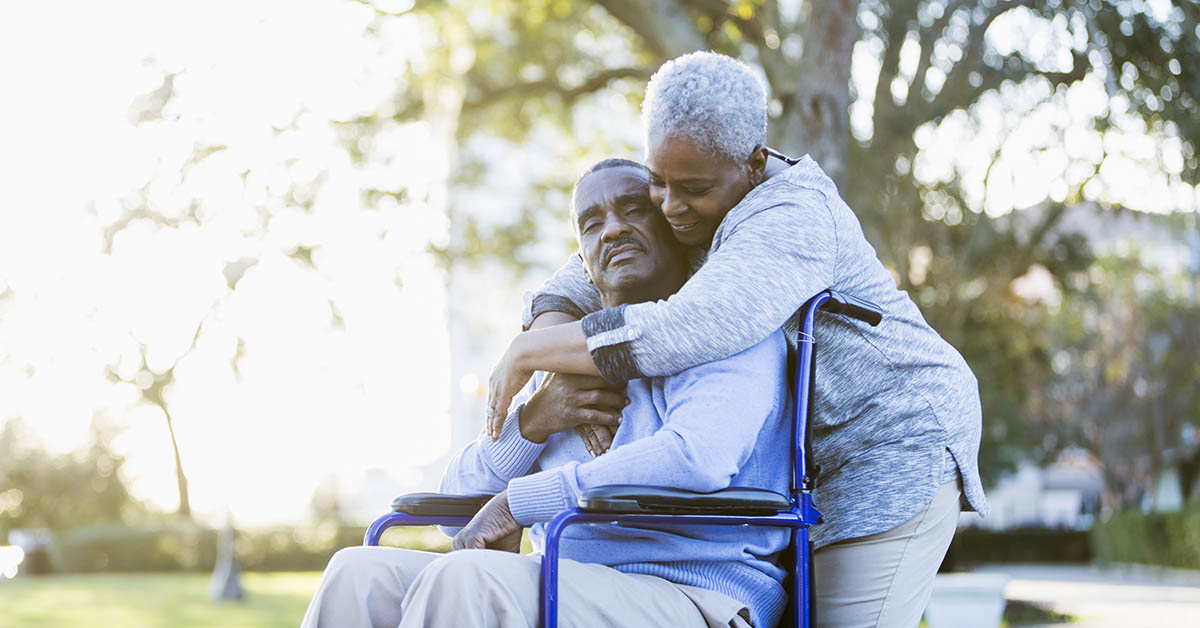
Stroke can be sudden and unexpected. Those who survive often require extra support from caregivers, who often are not prepared for the challenges they may face.
Recent studies estimate that 20 percent to 33 percent of caregivers suffer from depression. That’s more than double the rate of the general population.
“There’s a lot more to (providing care) than people realize,” says Karen Floriano-Heimerl, speech language pathologist at Aurora BayCare Outpatient Rehabilitation Center and lead facilitator for the Aurora BayCare Stroke Support Group.
“Many caregivers struggle with simply how to provide the right support the survivors need and how to keep them motivated in their recovery,” she says. “These added sources of stress can lead to depression if not managed well.”
Stroke survivors and their caregivers are often faced with challenges related to mobility, care and communication, which in turn can cause higher levels of emotional, mental and physical stress. Caregivers also may have feelings of anger, resentment, anxiety, isolation, exhaustion and guilt.
It’s important to seek help, Floriano-Heimerl says.
Therapy and medication are well-known and beneficial treatments for depression, but social support from other people in similar situations is important, too.
“Often times the support (for stroke survivors and their caregivers) is there right away from friends and family, but then it tends to disappear,” Floriano-Heimerl says. “Many stroke survivors do get a lot better but some of them don’t, and most do not return to life exactly how it was. Friends and family go back to their usual lives while the survivor and their caregivers don’t necessarily get to do that.”
Floriano-Heimerl was one of the founding members of Aurora BayCare’s Stroke Support Group, which allows stroke survivors, family members and caregivers to meet in a peer-to-peer setting.
“It’s important for them to connect with one another,” she says. “They each have a better understanding of stroke and what goes into being a caregiver. It’s just meant to be an open, welcoming place for anyone affected by stroke.”
The support groups are about survivorship, about people trying to learn and live life to the fullest after stroke, Floriano-Heimerl says.
The Aging & Disability Resource Center of Brown County also provides several resources for caregivers. The Brown County Caregiver Coalition is a group of professionals dedicated to help caregivers in the community, Floriano-Heimerl says.
“Caregivers need to realize they aren’t alone. They shouldn’t be afraid to reach out if they or their loved ones are experiencing feelings of depression,” she says. “There are so many resources and people willing to help.”
If you’re experiencing signs of depression -- quick to anger, irritable, not sleeping well or even showing physical signs of illness -- contact your physician and seek support, Floriano-Heimerl says.